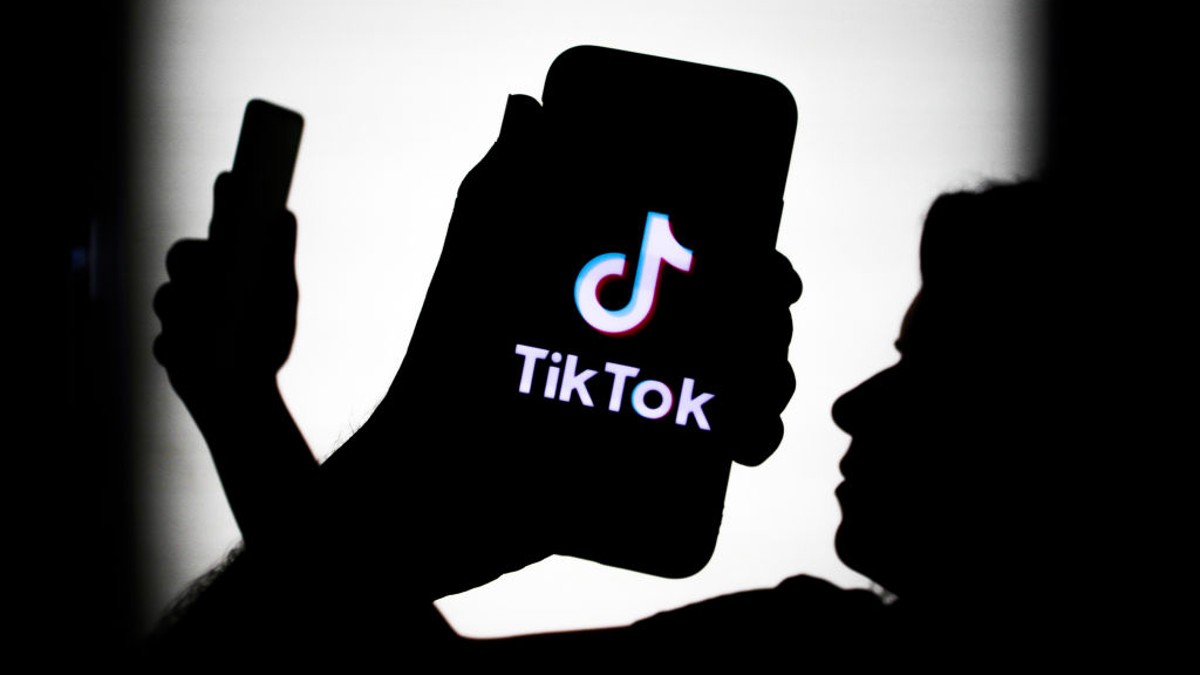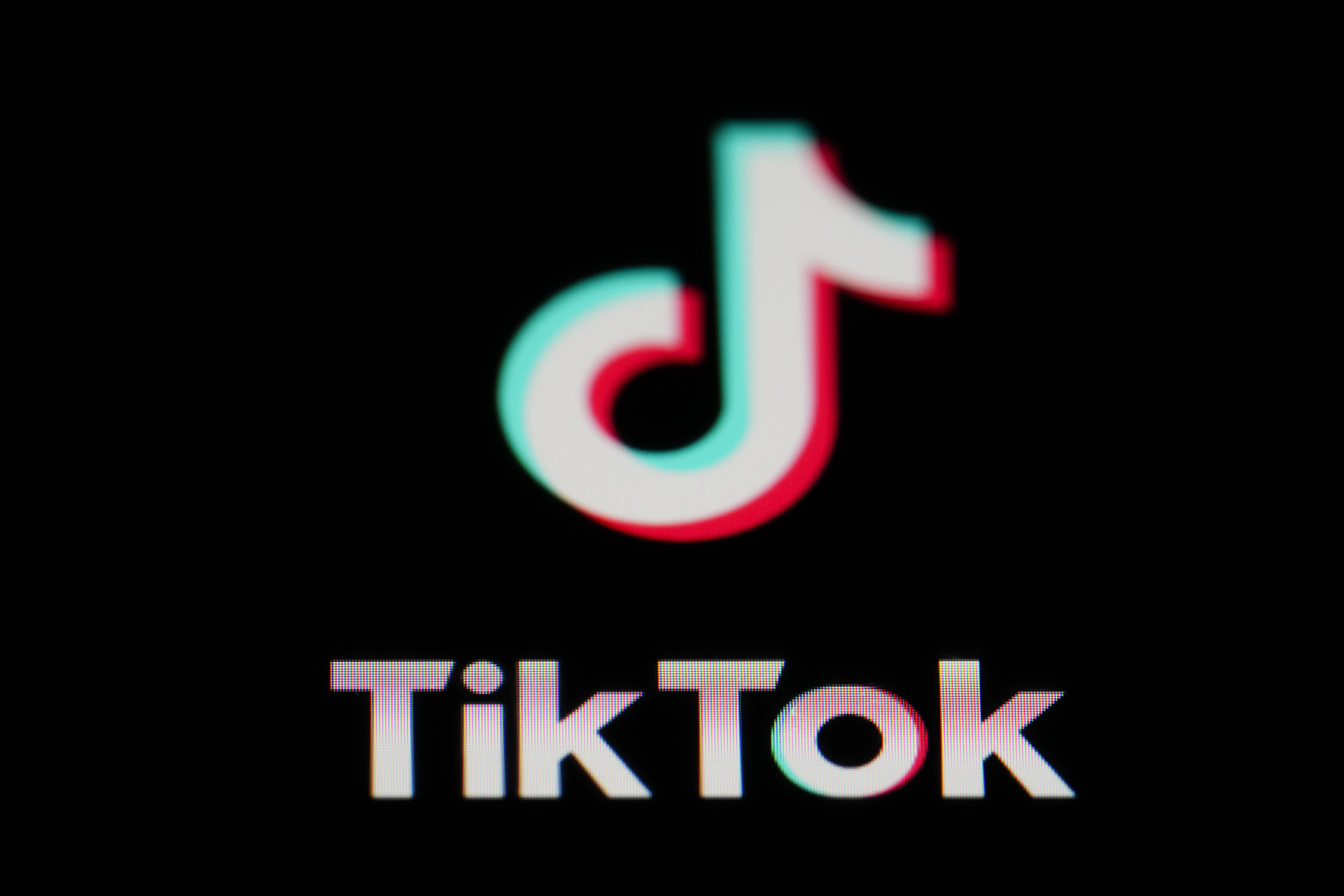
In a fresh broadside against one of the world’s most popular technology companies, the Justice Department late Friday accused TikTok of harnessing the capability to gather bulk information on users based on views on divisive social issues like gun control, abortion and religion.
Government lawyers wrote in a brief filed to the federal appeals court in Washington that TikTok and its Beijing-based parent company ByteDance used an internal web-suite system called Lark to enable TikTok employees to speak directly with ByteDance engineers in China.
TikTok employees used Lark to send sensitive data about U.S. users, information that has wound up being stored on Chinese servers and accessible to ByteDance employees in China, federal officials said.
One of Lark’s internal search tools, the filing states, permits ByteDance and TikTok employees in the U.S. and China to gather information on users' content or expressions, including views on sensitive topics, such as abortion or religion. Last year, the Wall Street Journal reported TikTok had tracked users who watched LGBTQ content through a dashboard the company said it had since deleted.
The new court documents represent the government’s first major defense in a consequential legal battle over the future of the popular social media platform, which is used by more than 170 million Americans. Under a law signed by President Joe Biden in April, the company could face a ban in a few months if it doesn't break ties with ByteDance.
Get Tri-state area news delivered to your inbox. Sign up for NBC New York's News Headlines newsletter.
The measure was passed with bipartisan support after lawmakers and administration officials expressed concerns that Chinese authorities could force ByteDance to hand over U.S. user data or sway public opinion towards Beijing’s interests by manipulating the algorithm that populates users’ feeds.
The Justice Department warned, in stark terms, of the potential for what it called “covert content manipulation” by the Chinese government, saying the algorithm could be designed to shape content that users receive.
“By directing ByteDance or TikTok to covertly manipulate that algorithm; China could for example further its existing malign influence operations and amplify its efforts to undermine trust in our democracy and exacerbate social divisions,” the brief states.
The concern, they said, is more than theoretical, alleging that TikTok and ByteDance employees are known to engage in a practice called “heating” in which certain videos are promoted in order to receive a certain number of views. While this capability enables TikTok to curate popular content and disseminate it more widely, U.S. officials posit it can also be used for nefarious purposes.
TikTok did not immediately reply to a request for comment.
Justice Department officials are asking the court to allow a classified version of its legal brief, which won't be accessible to the two companies.
In the redacted version of the court documents, the Justice Department said another tool triggered the suppression of content based on the use of certain words. Certain policies of the tool applied to ByteDance users in China, where the company operates a similar app called Douyin that follows Beijing’s strict censorship rules.
But Justice Department officials said other policies may have been applied to TikTok users outside of China. TikTok was investigating the existence of these policies and whether they had ever been used in the U.S. in, or around, 2022, officials said.
The government points to the Lark data transfers to explain why federal officials do not believe that Project Texas, TikTok’s $1.5 billion mitigation plan to store U.S. user data on servers owned and maintained by the tech giant Oracle, is sufficient to guard against national security concerns.
In its legal challenge against the law, TikTok has heavily leaned on arguments that the potential ban violates the First Amendment because it bars the app from continued speech unless it attracts a new owner through a complex divestment process. It has also argued divestment would change the speech on the platform because a new social platform would lack the algorithm that has driven its success.
In its response, the Justice Department argued TikTok has not raised any valid free speech claims, saying the law addresses national security concerns without targeting protected speech, and argues that China and ByteDance, as foreign entities, aren’t shielded by the First Amendment.
TikTok has also argued the U.S. law discriminates on viewpoints, citing statements from some lawmakers critical of what they viewed as an anti-Israel tilt on the platform during its war in Gaza.
Justice Department officials disputes that argument, saying the law at issue reflects their ongoing concern that China could weaponize technology against U.S. national security, a fear they say is made worse by demands that companies under Beijing’s control turn over sensitive data to the government. They say TikTok, under its current operating structure, is required to be responsive to those demands.
Oral arguments in the case is scheduled for September.



